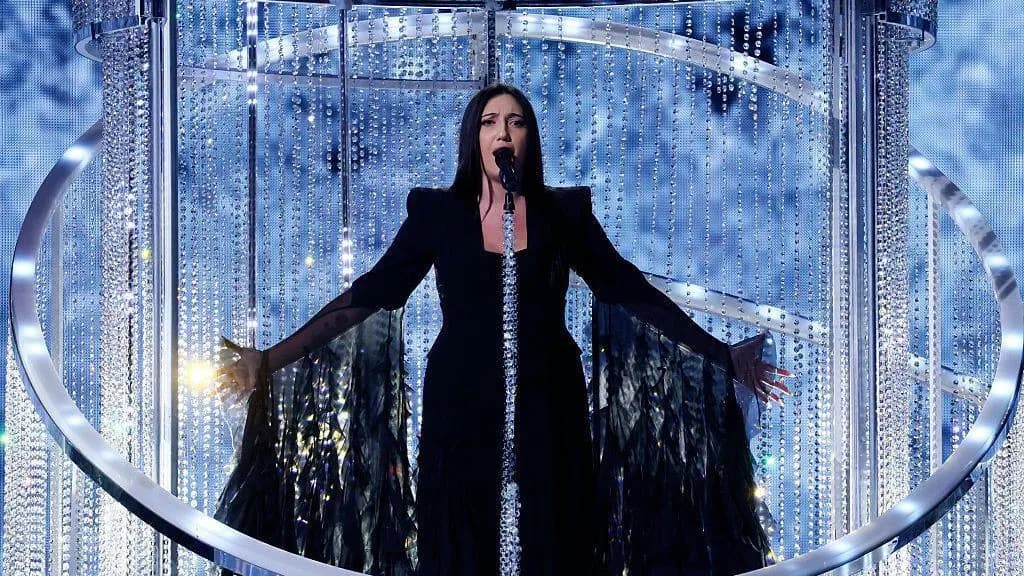We're loading the full news article for you. This includes the article content, images, author information, and related articles.
The European Broadcasting Union (EBU) has deferred a crucial decision on Israel's participation in the upcoming Eurovision Song Contest, highlighting the far-reaching impact of Middle East developments on global cultural events

The European Broadcasting Union (EBU), organisers of the annual Eurovision Song Contest, have postponed a vote on whether Israel will be allowed to compete in next year's competition. The decision, initially slated for a virtual meeting in November, will now be discussed at an in-person meeting in December, citing "recent developments in the Middle East" as the reason for the delay.
This postponement comes amidst heightened scrutiny and calls for boycotts from several countries if Israel participates in the 2026 contest, which will be hosted in Vienna, Austria. The EBU, representing public service broadcasters across 56 countries, stated that its executive board agreed on the need for an "open and in-person discussion" among its members regarding Israel's involvement.
The Eurovision Song Contest, while officially described as a "non-political event," has frequently found itself at the intersection of culture and geopolitics. The EBU's rules explicitly state that the contest "shall in no case be politicised and/or instrumentalised and/or otherwise brought into disrepute in any way." However, the ongoing conflict in the Middle East has intensified debates about the contest's neutrality.
In 2022, Russia was excluded from the competition following its full-scale invasion of Ukraine, a move that some critics have cited when questioning Israel's continued participation. Countries such as Spain, Ireland, Slovenia, Iceland, and the Netherlands have reportedly threatened to withdraw from the 2026 contest if Israel competes.
The EBU's decision-making process involves its executive board and a general assembly. The upcoming December meeting is expected to address the contentious issue of Israel's participation, though it remains unclear if a formal vote will take place at that time. The organisation has previously defended Israel's inclusion, noting that its public broadcaster, KAN, is a long-standing member.
New measures are reportedly being introduced for Eurovision 2025 in Basel, Switzerland, including a code of conduct for participants requiring political neutrality while on stage. This aims to foster an atmosphere free from political or personal agendas, with violations potentially leading to warnings or access restrictions.
The controversy has drawn strong reactions from various stakeholders. Pro-Palestinian demonstrations have occurred at recent Eurovision events, including the 2024 contest in Malmö, Sweden, and the 2025 event in Basel, Switzerland. These protests highlight the deep public divisions and the pressure on the EBU to address the political dimensions of the conflict.
From a Kenyan perspective, the nation maintains diplomatic relations with both Palestine and Israel. Kenya officially supports a two-state solution to the Israel-Palestine conflict, based on pre-1967 borders. However, Kenya's voting patterns at the United Nations have shown some inconsistencies, with President William Ruto condemning the Hamas attack on Israel in October 2023 while also affirming support for a two-state solution.
The postponement of the Eurovision vote underscores the broader impact of Middle East instability on international events. The conflict has far-reaching consequences, affecting global supply chains, energy prices, and potentially leading to increased geopolitical tensions.
The ongoing debate surrounding Israel's participation poses several risks for the Eurovision Song Contest, including potential boycotts by participating nations and a tarnishing of its image as a non-political cultural event. For Kenya, while the direct impact of this specific Eurovision decision is minimal, the broader Middle East conflict carries implications for trade, security, and diplomatic positioning.
Key uncertainties remain regarding the December EBU meeting, including whether a formal vote will indeed take place and what criteria will ultimately determine Israel's eligibility. The EBU has not yet clarified if discussions will continue into 2026 if a resolution is not reached. The tension between Eurovision's stated non-political stance and the reality of global events continues to be a significant controversy.
The EBU's executive board will discuss Israel's participation at its regular winter general assembly in December 2025. This meeting will be crucial in determining the path forward for Israel's involvement in the 2026 Eurovision Song Contest.
Observers will be closely watching the EBU's December meeting for any definitive statements or decisions regarding Israel's participation. The reactions of countries that have threatened boycotts will also be a key indicator of the broader implications for the contest's future and its ability to maintain a semblance of political neutrality amidst global conflicts.
Keep the conversation in one place—threads here stay linked to the story and in the forums.
Sign in to start a discussion
Start a conversation about this story and keep it linked here.
Other hot threads
E-sports and Gaming Community in Kenya
Active 9 months ago
The Role of Technology in Modern Agriculture (AgriTech)
Active 9 months ago
Popular Recreational Activities Across Counties
Active 9 months ago
Investing in Youth Sports Development Programs
Active 9 months ago